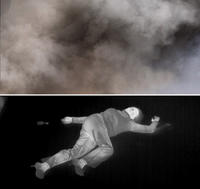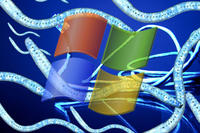-
Anthrax forensics help ID source of Haitian cholera outbreak
Researchers have discovered the source of the deadly cholera outbreak in Haiti that killed more than 6,000 people and sickened 300,000; the study determined that Nepalese peacekeepers brought cholera to Haiti, when they came to assist the country’s rebuilding efforts following the massive earthquake in January 2010
-
-
DRC wins DHS contract to help protect federal, state, and local agencies
On Tuesday Dynamics Research Corporation (DRC) announced that it had won a new blanket purchase agreement with the General Services Administration and DHS to provide a range of support services to federal, state, and local government agencies
-
-
Vumii unveils new thermal imaging cameras

Vumii, a firm that specializes in developing surveillance cameras, recently announced the addition of four new thermal imaging camera lines, expanding on its existing line of LED and laser-illuminated cameras
-
-
Fingerprint biometrics help secure medical data at Arizona hospitals
As more healthcare networks begin storing patient records electronically, they have become increasingly concerned with security and many are turning to biometrics; a healthcare provider in Southern Arizona recently introduced fingerprint biometrics at its facilities to help secure patient records and increase efficiency
-
-
Businesses customizing ads with facial biometrics
In a futuristic turn, some advertisers have already begun customizing their digital ads to whoever passes by using facial recognition software; so far the Venetian resort in Las Vegas, Nevada has been the first to adopt this technology in the United States; the resort has installed cameras with facial recognition technologies near their digital displays to customize restaurant and entertainment suggestions for individuals passing by
-
-
New Windows worm spreading by exploiting weak passwords

A new Windows worm is spreading through company networks by exploiting weak passwords; the worm, dubbed “Morto” spreads using RDP, or Remote Desktop Protocol, the Microsoft-made protocol for controlling one computer by connecting to it from another
-
-
Radiation detection market to see accelerated growth
The radiation detection industry will see accelerated growth as a result of ongoing homeland security concerns to greater concerns about safety in the nuclear power industry; the growth will involve both increases in the volume of materials required, and in the types of materials being sought
-
-
Record revenues for Universal Detection Technology
Last week Universal Detection Technology, which sells early warning monitoring technology for biological, chemical, and radiological threats, announced record high revenues for its most recent quarter
-
-
San Antonio’s "Piracy King" pleads guilty
Police in San Antonio recently put an end to the “Piracy King’s” reign; last Thursday, Ernest Christopher Smith, nicknamed the piracy king by local law enforcement officials because of the large number of fake DVDs he sold at local flea markets, pleaded guilty to trafficking in counterfeit goods.
-
-
Field Forensics launches quick opium detection kit
Field Forensics Inc., a U.S. developer of explosives detection and containment equipment, recently unveiled a new kit designed to detect a core chemical used to manufacture heroin
-
-
DRC wins DHS contract to help protect federal, state, and local agencies
On Tuesday Dynamics Research Corporation (DRC) announced that it had won a new blanket purchase agreement with the General Services Administration and DHS to provide a range of support services to federal, state, and local government agencies
-
-
U.S. makes nuclear fuel available to other countries
The United States announced the availability of a reserve stockpile of low-enriched uranium (LEU) for use in nuclear fuel; the LEU is derived from down-blended surplus military material; the LEU will be made available to countries interested in nuclear power generation, thus making it unnecessary for these countries to develop their own uranium-enrichment technology
-
-
Union Pacific settles drug fines, invests $50M in border security
Railroad giant Union Pacific Corp. agreed last week to invest $50 million to help protect the U.S.-Mexico border and to improve supply chain security; the announcement comes as the settlement of an ongoing dispute between the railroad company and U.S. border officials over nearly $500 million in fines
-
-
Next generation flying: pilots use iPad for navigation

United Airlines pilots will use the iPad to replace the bulky flight manuals and chart books pilots carry with them; the company ordered 11,000 iPads, saying they will save sixteen million sheets of paper a year, and that the lighter load will save 326,000 gallons in fuel. the on
-
-
TSA finalizes air cargo screening mandate
The Transportation Security Administration (TSA) announced on Tuesday that it had implemented the final part of the 9/11 Commission’s requirement for air cargo screening; under Tuesday’s finalized rule, air cargo companies may apply to become a Certified Cargo Screening Facility (CCSF) — CCSFs carry out a TSA-approved security program offsite and transport it to the airport securely without the need for rescreening
-
- All
- Regional
- Water
- Biometrics
- Borders/Immig
- Business
- Cybersecurity
- Detection
- Disasters
- Government
- Infrastructure
- International
- Public health
- Public Safety
- Communication interoperabillity
- Emergency services
- Emergency medical services
- Fire
- First response
- IEDs
- Law Enforcement
- Law Enforcement Technology
- Military technology
- Nonlethal weapons
- Nuclear weapons
- Personal protection equipment
- Police
- Notification /alert systems
- Situational awareness
- Weapons systems
- Sci-Tech
- Sector Reports
- Surveillance
- Transportation
Advertising & Marketing: advertise@newswirepubs.com
Editorial: editor@newswirepubs.com
General: info@newswirepubs.com
2010-2011 © News Wire Publications, LLC News Wire Publications, LLC
220 Old Country Road | Suite 200 | Mineola | New York | 11501
Permissions and Policies
Editorial: editor@newswirepubs.com
General: info@newswirepubs.com
2010-2011 © News Wire Publications, LLC News Wire Publications, LLC
220 Old Country Road | Suite 200 | Mineola | New York | 11501
Permissions and Policies
